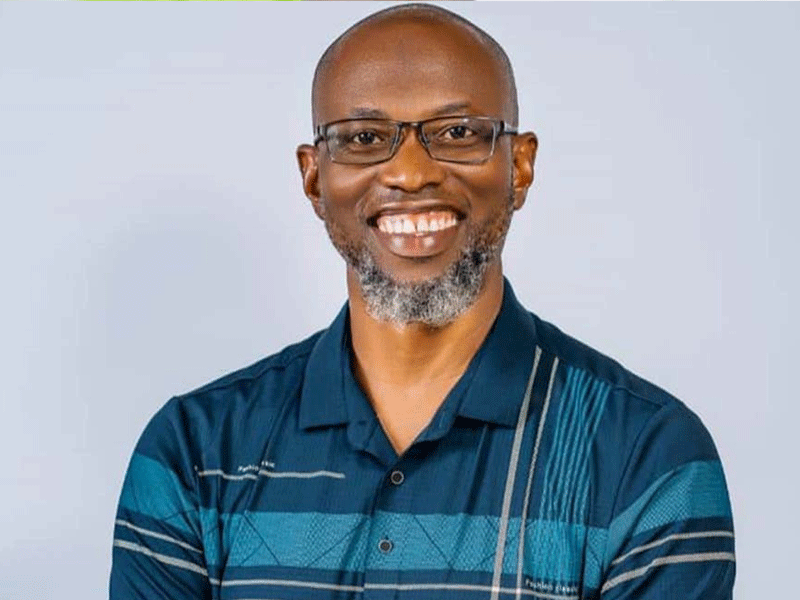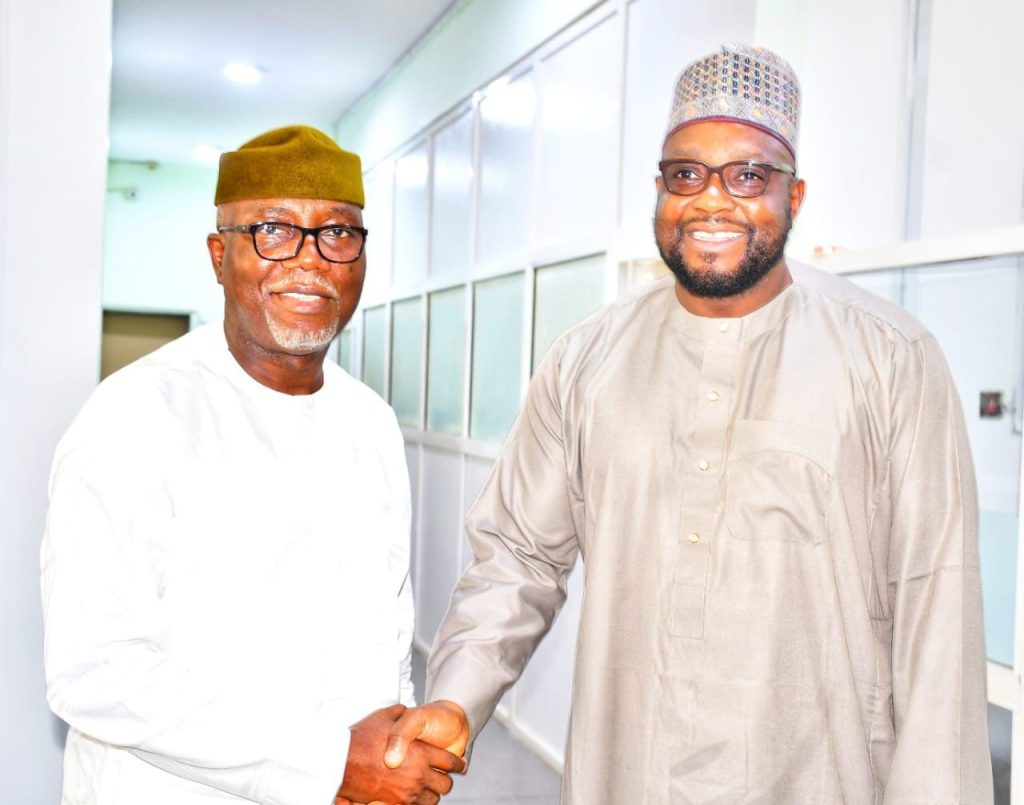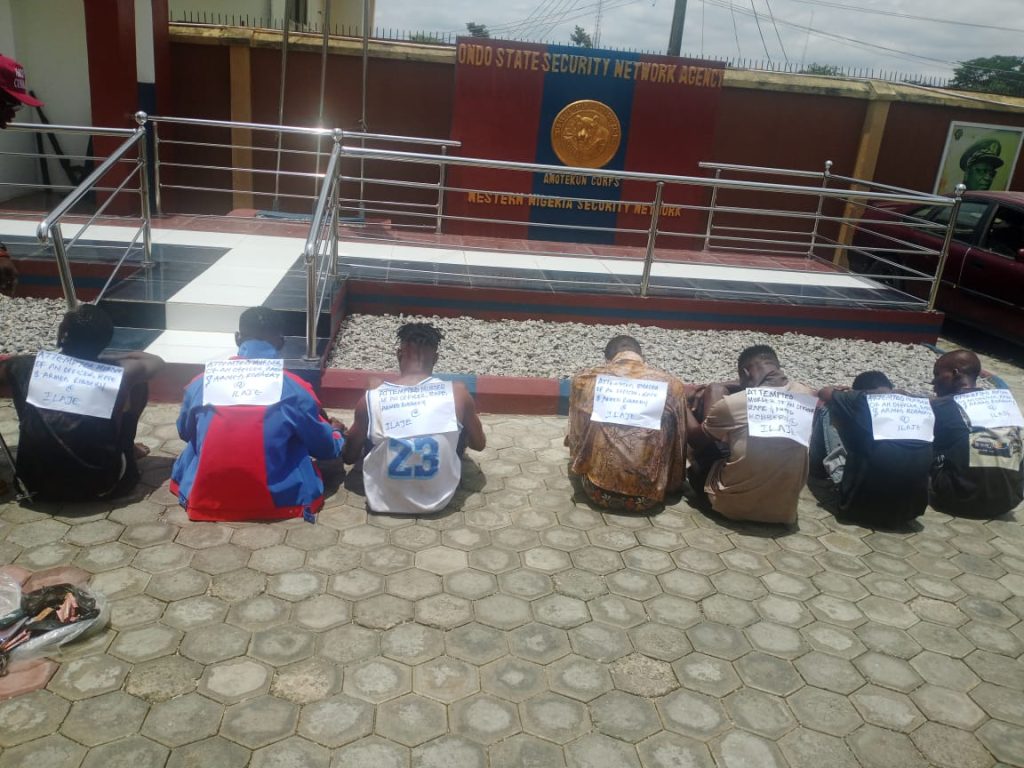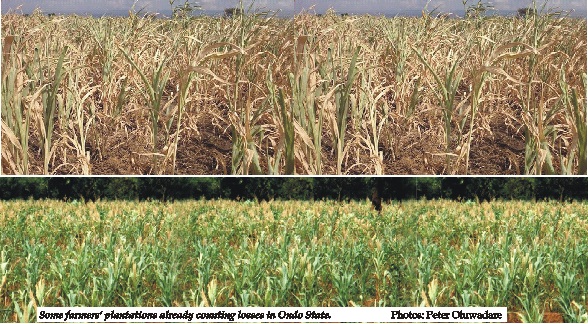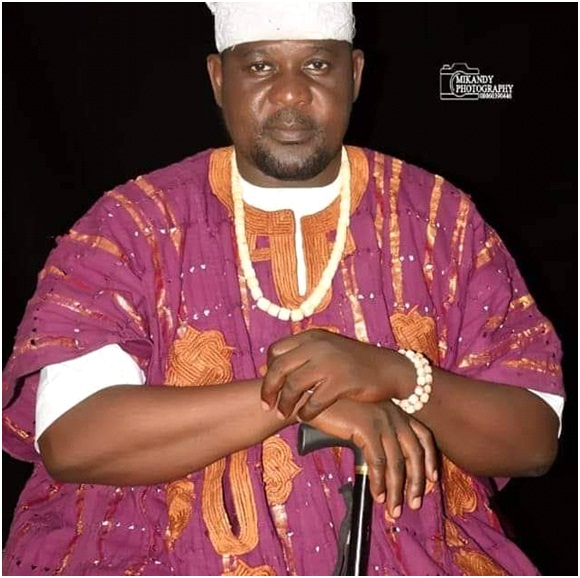Nigeria’s beautification of bandits
Busuyi Mekusi
I watched a clip of the decoration of Tobi Amusan, the world champion in Women’s 100M hurdles, as she sheds tears on the rostrum when the national anthem of Nigeria was aired to complement the flag she flew, and my eyes got wet, with tears rolling down my cheeks. While her own tears could have been that of joy, or other mixed feelings that are both personal and collective, my own tears were responsive to the seemingly economic and security hopelessness that Nigerians were struggling with. Her victory, on the sideline of the athletic pitch, also received a vibe from the Buga-Won sensation that is fast dominating the global wave and space. With another remarkable shine by Amusan, in league of other Nigerians that have done (and are doing) the nation proud, one would ordinarily wonder why Nigerians succeed individually, but fail collectively.
One arguable reason for the backwardness of Nigeria is leadership deficiency, over the years. Post independence Nigeria hosted military dispensations that were not only considered an aberration, but disruptive interlopers that distorted political cultures and negatively skewed state and local government creations to favour a part and disadvantage others. The 1999 Constitution of the Federal Republic of Nigeria (as amended) that was birthed by the Abdusallam’s regime remains a ‘deficient’ grundnorm with which the nation is run, but which has thrown up many controversies. Some of the incongruities in the constitution is the suggestive provisions that make Nigeria a secular state and at the same time give recognition to Sharia and penal codes, thereby elevating religion from private domains to the public sphere. Little wonder that religions have been used to prosecute personal agenda, and pursue selfish interests. Just like corruption, if we do not kill ethnicity and religion, they would kill us!
The mental and emotional restlessness of another Nigerian genius, Wole Soyinka, and his artistic disruptive propensities in the Nigerian and African socio-cultural and politico-economic spaces have not only earned him a Nobel Prize in Literature but inscribed for us archival materials with which to reference the past and peep into the future. This is so because of the prophetic instincts that are locked in writers. Over the ages, experience has shown that the fictional narratives in a work could correlate, either in part or whole, with those of others who are physically removed from the socio-cultural and political contexts that produced the raw materials upon which such thematic preoccupations, character formations and plot structuration are hinged. It is to this end that Soyinka’s The Beautification of Area Boy becomes a template to read the stories of the Federal Republic of Nigeria, which is fast cascading to the ‘Republic of Bandits’.
Soyinka’s The Beautification of Area Boy, otherwise called Lagosian kaleidoscope by the publisher, is an exploration of the suffocating absurdity in the Nigeria society under military regimes, including that of Buhari/Idiagbon, during which human rights violations were popular, particularly the enunciation of the notorious Decree 4 of 1984 (Public Officers Protection Against False Publications) that abridged the constitutional right of Nigerians to own and express opinions. Two journalists, Ndukar Irabbor and Tunde Thompson were victims of this unconstitutional rage. This play-text by Soyinka is patterned after the style and tropes of ‘theatre of the Absurd’, which is a phrase coined by Martin Esslin, and which refers to dramatic works of certain European and American dramatists of the 1950s and early ’60s who aligned with the Existentialist philosophy of Albert Camus expressed in his essay “The Myth of Sisyphus”, to the effect that the human situation, as evident by the sad commentaries in Nigeria, is essentially absurd, devoid of purpose.
From the political woes, economic distresses, societal upheavals, ethnic tensions, religious mistrusts and conflagrations adorning the Nigeria scapes, one may have to talk about Nigerian kaleidoscope and absurdities when viewed against the backdrop that theatre of the Absurd is a “genre of twentieth century drama characterised by bizarre themes, characters and conventions that illustrate the notion that reality is a meaningless accumulation of unrelated events made preposterous by man’s futile attempt to interpret it or give it order”. This paradoxical quest to locate good amidst bad or beauty among ugliness best explains the futility that confronts Nigerians who are ordinarily desirous of positive outcomes from democratic experiments, other than the tears, sorrows and blood that poverty, parlous infrastructures, hailing economy, insecurity, ethno-religious killings, etc., which are ubiquitously palpable.
As the term bandits now synecdochically refers to the various criminal elements operating in Nigeria, the recent weeks in the security overview about the country have indicated the progressive movements of bandits from forests across the country to community and city centres where they hold sway, get turbaned, collect taxes, break prisons and set their incarcerated members loose, attack presidential advance convoy and Guards Brigade, kidnap victims for money, threaten the abduction of the president, governor and government officials and torture the citizens through the vicarious brutalisation of kidnapped victims that have been held for almost a planting season.
Old narratives justified the creation of Boko Haram for political reasons, and the pushes by Sheik Gumi to get the federal government to negotiate with bandits have continued to reinforce the suspicions of some citizens that the ruling party knows more than others about the revulsions being expressed by the renegades. This is more so as Boko Haram elements in the past appointed Buhari as a chief negotiator with the government, coupled with the attempt that was made on his life when he openly renounced the group. Buhari needs to be told, very clearly, that the issues between him and the bandits cannot remain private now that they have vowed to abduct him, since the vacuum to be created by such abduction would plunge the nation into serious constitutional crisis. This is not to mention the embarrassment, sense of vulnerability and climate of fear that would envelope the nation if such dastardly act is carried out. Needless to point out that the ceaseless hovering of these criminal elements around Abuja, the seat of power, leaves more to be desired, including the probability of bandits’ ascension to power.
Soyinka’s The Beautification of Area Boy reminds us about specific things that got us to where we are. Some of the fictional characters ideally or ideologically signify some politico-economic characters and characterisations in the Nigeria milieu. Apart from the plot development around a marriage ceremony that goes awry, with a disgraced and disenchanted military administrator involved, a character like Sanda, the focal point and catalyst in the play, who is the ever cunning and calculating security officer of the plaza where the event is held, who has a lot of area boys at his command, typifies shrewd economic people, mostly devilish politicians and business-minded security personnel, that would profit from criminal activities. Sanda relies on mischief and tricky distraction in the play to create confusion and get his boys to unleash terror on unsuspecting people, as he uses them to pack the crisp notes of naira sprayed over the plaza in ostentation and exhibitionism.
Sanda similarly behaves like bandits who could no longer stand the open display of materialism by the questionable rich, and devised ransoms collection in the forest, from city-dwellers that fall victims by instalments. With the huge returns bandits are making from ransom payments, illegal gold mining and crude oil thefts, it is predictable they would one day acquire necessary hardware to frontally confront Nigerian forces, as being showcased in the different audacious attacks being carried out recently. Analogous to what area boys are to Sanda, it would not be outlandish to opine that surrogates of these bandits have been dispersed across the country, waiting for the comprehensive mopping up of material assets that would help them sustain their hold in the various enclaves that would fall to them after the onslaughts that would follow the diversions being created through political machinations. It seems unsuspecting Nigerians are busy talking 2023 while non-state actors and other collaborators are plotting possible Republic of Bandits.
Other characters in Soyinka’s The Beautification of Area Boy are Barber, who, in line with the sensibilities of some Nigerians, is defined by his belief in ritual killing; Judge who, like Nigerian judges, is fixated on the issue of permissible prerogative of mercy; and Mama Put, representing common Nigerians, who is preoccupied with how to sell and train her daughter acceptably, even though, reminiscent of the lowly background that produced people like Tobi Amusan, she can hardly buy textbooks for her. Little wonder that Nigerian governments would want citizens to steely weather stormy trajectories like the cat-fish, and end up in either neater oceans or hot pepper-soup pots.
Nigeria stories are daily frightening but, as dictated by absurdist literature, with the possibility of meaningfulness from pervasive meaninglessness. As national constitutional apparatuses seem to be weary and fainting in the face of the attritions by insurgents, it may be safe to conclude about the country in these borrowed words that “in a world characterised by destruction of acceptable moral order, frustration, hopelessness, fragmentation, hostility, absurdity and disenchantment will be the order of the day”.

